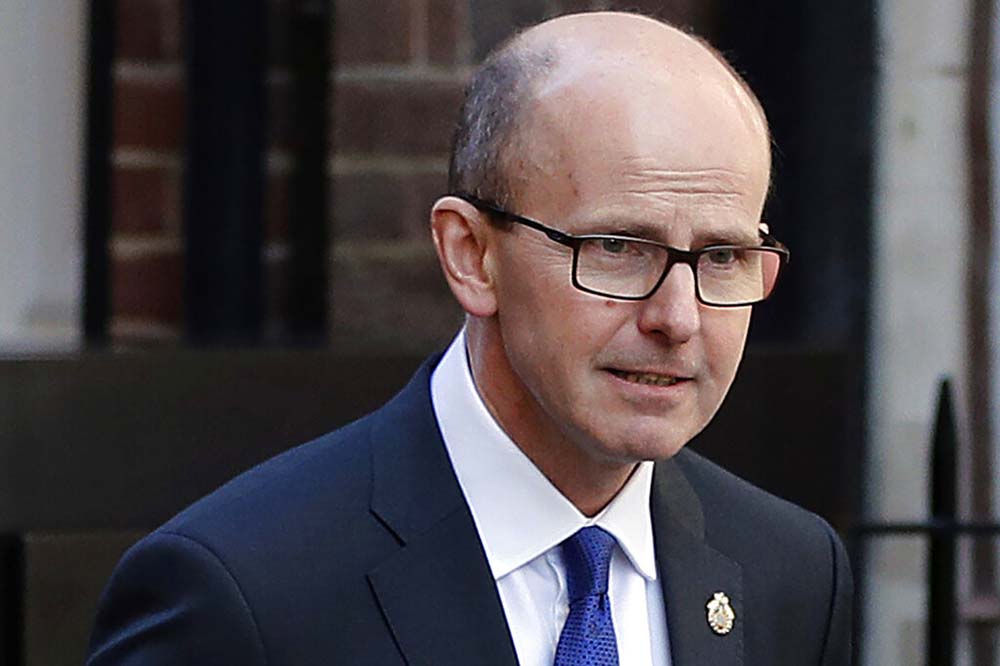
LONDON: The head of Britain's cyber-intelligence agency on Tuesday accused China of trying to "rewrite the rules of international security," saying Beijing is using its economic and technological clout to clamp down at home and exert control abroad.
Jeremy Fleming, director of GCHQ, said that despite the war raging in Europe since Russia's invasion of Ukraine, Beijing's growing power is the "national security issue that will define our future."
In a rare public speech to the Royal United Services Institute think tank, Fleming alleged that Beijing's Communist authorities want to "gain strategic advantage by shaping the world's technology ecosystems."
"When it comes to technology, the politically motivated actions of the Chinese state is an increasingly urgent problem we must acknowledge and address," Fleming said. "That's because it's changing the definition of national security into a much broader concept. Technology has become not just an area for opportunity, for competition and for collaboration, it's become a battleground for control, for values and for influence."
He argued that the one-party system in Beijing seeks to control China's population and sees other countries "as either potential adversaries or potential client states, to be threatened, bribed or coerced."
Ahead of the speech, a Chinese official in Beijing said that China's technological development is aimed at improving the lives of Chinese people and does not pose a threat.
"These allegations have no factual basis at all," Foreign Ministry spokesperson Mao Ning said. "Clinging to the so-called China threat and provoking confrontation benefits no one and will eventually backfire."
Relations between Britain and China have grown increasingly frosty in recent years, with UK officials accusing Beijing of economic subterfuge and human rights abuses.
British spies have given increasingly negative assessments of Beijing's influence and intentions. Last year the head of the MI6 overseas intelligence agency, Richard Moore, called China one of the biggest threats to Britain and its allies.
In 2020, then-British Prime Minister Boris Johnson followed the United States in banning Chinese tech firm Huawei as a security risk, ordering it to be stripped out of the UK's 5G telecoms network by 2027.
Fleming warned that China is seeking to fragment the infrastructure of the internet to exert greater control. He also said China is seeking to use digital currencies used by central banks to snoop on users' transactions and as a way of avoiding future international sanctions of the sort imposed on Russia over its invasion of Ukraine.
Fleming argued that China's BeiDou satellite system — an alternative to the widely used GPS navigation technology — could contain "a powerful anti-satellite capability, with a doctrine of denying other nations access to space in the event of a conflict."
Fleming warned that the world is approaching a "sliding doors" moment in history — a reference to the 1998 Gwyneth Paltrow film in which a woman's fate hinges on a seemingly trivial moment.
He called on Western firms and researchers to toughen intellectual property protections and for democratic countries to develop alternatives that can prevent developing nations from "mortgaging the future by buying into the Chinese vision for technology."
He said the world's democracies can't afford to fall behind in cutting-edge fields such as quantum computing, and warned of a potential weakness over semiconductors, the critical chips used in everyday electronics. Taiwan — which China regards as a breakaway province to be reclaimed by force if necessary — is a world leader in their production.
"Events in the Taiwan Straits — any risk to that vital supply chain — have the potential to directly impact the resilience of the UK and global future growth," Fleming said.
Fleming also addressed the war in Ukraine, saying Russia is running short of weapons and Ukraine's "courageous action on the battlefield and in cyberspace is turning the tide."
"Russia's forces are exhausted," he said. "The use of prisoners as reinforcements, and now the mobilization of tens of thousands of inexperienced conscripts, speaks of a desperate situation."
GCHQ, formally known as the Government Communications Headquarters, is one of Britain's three main intelligence agencies, alongside MI5 and MI6. It did not disclose the sources of its intelligence on China and Russia.
By RSS/AP
READ ALSO:
Published Date: October 12, 2022, 12:00 am
Post Comment
E-Magazine
RELATED International



.jpg)

.jpg)